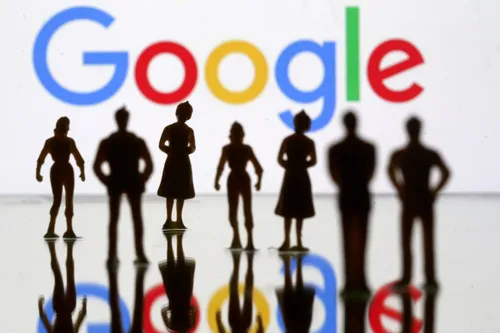Google Will Limit Data Sharing With Advertisers to Protect User Privacy
GoogleFriday, 15 November 2019 at 12:36

On Thursday, Alphabet, in a blog post, announced that starting February 2020, Google will no longer provide information to participants in its ad auction about the type of content on a website or page where an ad could appear. With this move, it will protect user privacy requirements.
A content category is a description of content type on a particular page, website, or application. For example, these categories can indicate whether the content is related to the news. Its purpose is to provide the advertiser with contextual information about the website or application for which the ad may appear. They can help advertisers avoid showing ads on certain types of content that are not suitable for their brand. Another purpose, they may help advertisers identify the type of content they really want to advertise.

This precise targeting is the main reason why Google can absorb a large number of online advertisements. Google has not disclosed its revenue data from the online display advertising business. But it often uses programmatic advertising as a key driver of its revenue growth.
However, Google has been criticized for its way of handling personalized online advertising data.
In May of this year, the Irish data protection regulator launched an investigation into how Google handled user data in advertising transactions. The regulator is trying to determine whether Google's practices comply with the EU's strict User Privacy Protection Act. As you know, the latter requires high transparency and minimizes data collection.
Now, Google will no longer provide content category information for the context in which an ad appears. However, it's unclear whether some of Google's advertisers have been able to establish such connections in the past, or whether they can do so now.
What Does Google Think About This?
Google said it made this change after ‘contact with data protection agencies’. But it also said they will continue to work with organizations that ‘investigate data protection practices in their advertising business.’ Chetna Bindra, Google’s senior product manager for user trust and privacy, also said that the company will update the EU Regional User Solicitation Policy for publishers, advertisers and authorized buyers (EU User Consent Policy).
The executive also explained that Google's real-time bidding (RTB) platform, where publishers sell advertising, already has ‘strong measures’ to protect privacy. Publishers need the consent of the user to show them personalized content. At the same time, Google's data minimization practices should prevent the identification of users, ‘including truncating device IP addresses and using only resettable user IDs.’
Some people think that this is just a small step in Google's efforts to strengthen privacy protection.
Johnny Ryan, chief policy officer of Brave Software Inc., an ad-blocking browser company in the United States, said: ‘Google will still broadcast ‘bid requests’ that detail what you are watching, reading, or listening to countless companies. These bid requests will include information about where you are, and enough data to link things about over time.’
By the way, previously, Brave Software Inc. filed a lawsuit with the European data protection authorities over Google's advertising auction technology.
Loading






